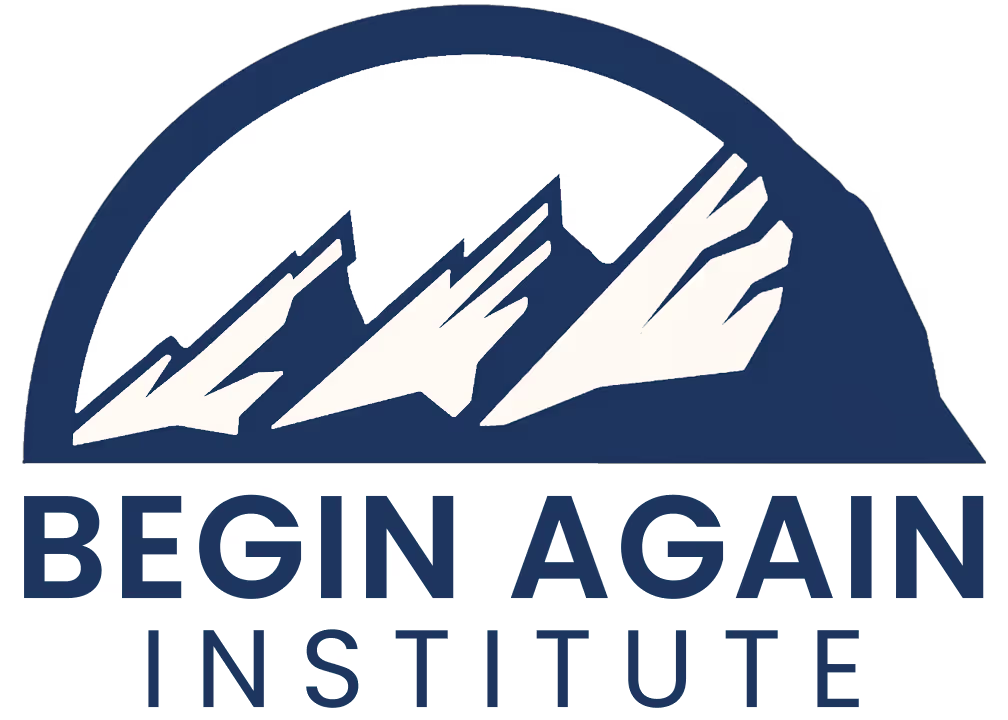The Importance of Addiction Awareness


Have you ever felt alone in your addiction? Do you worry that no one understands your experience?
Despite millions of Americans experiencing addiction, stigma keeps many people from getting the help they need. That’s one important reason addiction awareness is crucial for those seeking healing and lasting recovery.
What Is Addiction Awareness?
Addiction awareness means educating the public on the causes, impacts, and struggles of those experiencing addiction.
When you think of someone experiencing addiction, you may assume negative stereotypes about the person. But the truth is, addiction is a health condition, not a moral failure, and it affects many Americans.
Addiction can take different forms, such as a substance use disorder, like using drugs or alcohol, or a behavioral disorder, like sex or porn addiction.
Understanding addiction helps increase your knowledge about the risk factors, warning signs, and treatment options. Information is empowering. By learning about your addiction, you’re building a foundation for prevention, early intervention, and destigmatization.
Sex and Pornography Addiction: Yes, It’s Real
If you haven’t heard of sex or porn addiction before, the idea may surprise you. How can someone get addicted to a “normal” human behavior? It comes down to the ability to moderate your behaviors. A person who can function without relying on drinking would not be experiencing addiction. But when the behavior becomes compulsive and unmanageable, it’s classified as an addiction.
Sex addiction is an inability to control sexual thoughts, impulses, and desires. It’s also known as compulsive sexual behavior or hypersexuality disorder. Pornography addiction is a form of sex addiction.
Similar to a dopamine hit from drugs or alcohol, the brain experiences bursts of pleasure from having sex or watching porn. When the brain becomes reliant on those hits, it’s a self-soothing mechanism to relieve unhealed traumas.
Sex addiction can look different for each person. Raising awareness helps those experiencing sex and porn addiction to understand their addiction better and feel less isolated.
Raising awareness of sex and porn addictions can have a positive impact:
- Challenging social taboos that prevent open discussion
- Helping people recognize problematic patterns in their sexual behavior
- Reducing shame that often prevents people from seeking treatment
- Educating about the neurological impacts of pornography on the brain’s reward systems
- Promoting healthy sexuality versus compulsive sexual behaviors
- Providing resources for affected partners, families, and support systems
“The more you talk about it, the more people will want to do it,” is a common misconception aimed at suppressing conversations surrounding addiction. In reality, when you understand the signs and causes of addiction, you are less likely to become afflicted with it yourself. You can consider whether the behaviours you default to are healthy coping mechanisms or signs of addiction.
Addiction Risk Factors and Warning Signs
When determining if you or a loved one is experiencing addiction, there are criteria you can look to for guidance. While addiction can affect anyone, some people may be more at risk than others due to specific factors.
Methods for spotting risk factors and warning signs:
- Recognizing genetic predisposition and knowing family history
- Understanding how trauma can result in addiction
- Recognizing negative environmental and social contributors to addiction
- Noticing early behavioral indicators of potential addiction
- Sensing physical and psychological warning signs
- Perceiving changes in work, relationships, and health
Addiction Myth vs. Fact
Stereotypes and myths about addiction lead to misinformation, misdiagnosis, and suffering for those experiencing it. Common myths about addiction include:
- Myth: Addiction is a choice.
- Fact: Addiction is a complex brain disorder, not a moral failing.
- Myth: You can’t be addicted to something like sex or porn.
- Fact: Behavioral addictions, including sex and pornography, are real and can be just as disruptive as substance use disorders.
- Myth: People with addictions just need more willpower.
- Fact: Willpower alone isn’t enough. Addiction alters the brain’s chemistry and structure.
- Myth: If someone looks fine, they must not be addicted.
- Fact: Addiction doesn’t always look like chaos or rock bottom.
- Myth: Talking about sex or porn addiction just encourages more of it.
- Fact: Silence and stigma keep people stuck.
- Myth: If someone relapses, the treatment didn’t work.
- Fact: Relapse is a common part of the recovery journey.
Why Awareness Matters
Addiction can have devastating effects on individuals, their loved ones, and society at large. Many people suffer in silence, without a name for why they are struggling. The lack of available education is why improving addiction awareness has become crucial.
Addiction awareness helps with:
- Prevention. Understanding addictions and how and why they develop can help people avoid them.
- Early Identification. Recognizing warning signs can assist with initiating timely support.
- Intervention. If you understand what addiction looks like and what to do, it’s easier to take action when you see it.
- Treatment Engagement. Awareness and understanding help overcome barriers to seeking help.
- Recovery Support. Maintaining long-term wellness becomes more possible with information and support.
- Relapse Prevention. Understanding triggers and vulnerabilities can help you avoid relapse.
Relapse is a normal part of recovery, but it’s often accompanied with shame and confusion. When you understand the signs, triggers, and causes of relapse, you feel less alone and are better equipped to move forward with your healing journey.
Awareness in Action: How Communities Can Respond
Addiction is a public health issue. It’s preventable and treatable, but difficult to do without large-scale support. Improving addiction awareness requires decreasing stigma surrounding addiction by having open and honest conversations. When addiction is villainized in pop culture and media, those experiencing addiction are less likely to seek the help they need.
There are actionable methods communities can employ to raise awareness and provide resources for those experiencing addiction.
Public Education Campaigns
- Media-based awareness initiatives (PSAs, documentaries, social media)
- School-based prevention programs and curriculum integration
- Workplace awareness training and employee assistance programs
- Community outreach events and information sessions
- Targeted messaging for high-risk populations
- Use of personal recovery stories to humanize addiction
Fighting Stigma Through Awareness
- Promoting person-first language (“person with substance use disorder” vs. “addict”)
- Challenging misconceptions about addiction as a moral failing
- Highlighting addiction as a treatable health condition
- Addressing discrimination in healthcare, employment, and housing
- Encouraging open conversations about addiction experiences
- Normalizing help-seeking behaviors
Treatment and Recovery Education
- Education about evidence-based treatment approaches
- Information on accessing treatment services and navigating insurance
- Awareness of different recovery pathways and support options
- Recovery success stories and possibility messaging
- Long-term nature of recovery and relapse prevention strategies
- Family and community roles in supporting recovery
Harm Reduction Awareness
- Education about overdose prevention and response
- Naloxone distribution and training programs
- Safer use practices to reduce disease transmission
- Medication-assisted treatment options
- Low-threshold services and engagement strategies
- Meeting people “where they are” in their readiness for change
Alongside providing resources and education, communities should celebrate recovery journeys and rally around those needing support. People experiencing addiction are more likely to achieve recovery when they have positive social encouragement.
How You Can Help
Changing the stigma surrounding addiction doesn’t happen overnight, but intentional steps taken by individuals create lasting change.
Educating Yourself
Learn the signs, symptoms, and realities of addiction. These include substance use and behavior addictions, like sex and pornography addictions. Stay informed about treatment options and recovery resources, and understand how trauma, mental health, and social standards impact addiction.
Speaking Without Stigma
Use nonjudgmental, person-first language. For example, you should say “a person in recovery” rather than an “addict.” Challenge harmful stereotypes and misinformation when you hear them, and encourage open, shame-free conversations about addiction.
Supporting Someone You Know
Listen without trying to “fix” them. Offer empathy, not ultimatums. Instead of saying, “Give this up or I can’t help you anymore,” try, “I understand this is overwhelming. What steps can we take to help you recover?”
Encourage professional help without forcing it. A person experiencing addiction needs to take the first step for themselves, not for others.
Set healthy boundaries while remaining emotionally supportive. You can’t help someone else if you’re burned out.
And finally, include loved ones of those with addictions. They often need care, too
Be Visible With Your Support
Use your platform to normalize seeking help. You never know who could be inspired to start their own journey to recovery. Share resources, stories, or facts on social media. Attend awareness events, film screenings, or public forums, and volunteer with local organizations or hotlines.
How Begin Again Institute Can Help
At Begin Again Institute, we recognize the stigma surrounding addiction, which is why we offer judgment-free treatment for intimacy disorders, including sex and pornography addiction resulting from unresolved trauma. We follow the Trauma-Induced Sexual Addiction (TINSA®) model, a holistic and research-backed method for treating sex and porn addiction.
We offer a range of treatment programs tailored to meet your lifestyle needs. With an individualized approach, our certified trauma-informed sex addiction therapists help you uncover the root of your addiction so you can work toward healing.
Give us a call to learn how you can start your recovery journey today.
Test Intensive Date
We get right to work, so you can get back to life.
“Begin again helped me jumpstart my healing. It’s like
a years worth of therapy in one trip.”


